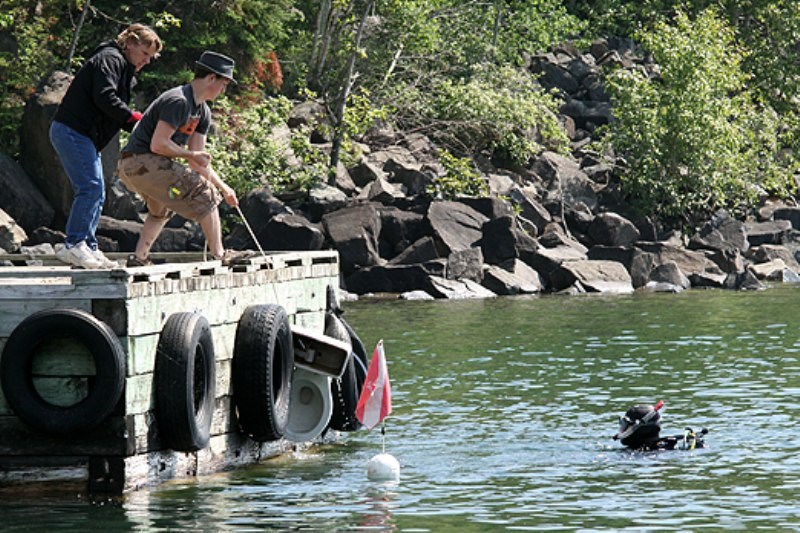Usually people look for sunken treasure but a group of scuba divers instead searched for trash at the bottom of Silver Harbour on Sunday.
About 20 volunteers went into the chilly water of Lake Superior for the second Eco-Dive. The event started as a way to clean and remove waste thrown into the lake. This year the volunteers worked to remove tires, metals, beer bottles, dog toys and toilets out of Silver Harbour.
Diver Len Mason started the event about a year ago as a way to try to remove some of the harmful waste that was in the water. After scuba diving for three years, looking at rocks and fish lost it’s appeal so Mason said he decided to something productive.
"Our quest is to take as much garbage as we can from the bottom without disturbing fish habitats and then haul it away," Len said. "It’s all about cleaning up the environment. We did a recognisance dive here at Silver Harbour and we were just shocked at the amount tires, metal and garbage that is in here."
He was able to get a grant from the Ministry of Natural Resources Fisheries and Wildlife Involvement program to help pay for the costs. He also worked with various companies, landfills and recycling plants to take the waste when they brought it up.
An added bonus for the clean up was that it improved the skills of the divers. Mason said there’s not many locations in Lake Superior where people can dive if they don’t have a boat so it’s good to take advantage of any opportunity to get into the water.
The clean up only lasted a few hours but Mason said he hoped to conitnue the event next year.
MNR Biologist Rosemary Hartley said while Lake Superior was fairly clean removing harmful waste such as microwaves and car batteries couldn’t hurt.
"Not all of the waste is harmful to fisheries but some of it is," Hartley said. "Once microwaves and car batteries start to degrade they can emit chemicals into the water. It’s nice to get them out before they do that. The big steps are to ensure that people recognize that flowing things into the water does have consequences."
Sign in or register
- Messages
- Post a Listing
- Your Listings
- Your Profile
- Your Subscriptions
- Your Likes
- Your Business
- Support Local News
- Payment History
Registered Users
Already have an account?
New Users
Create a free account.
